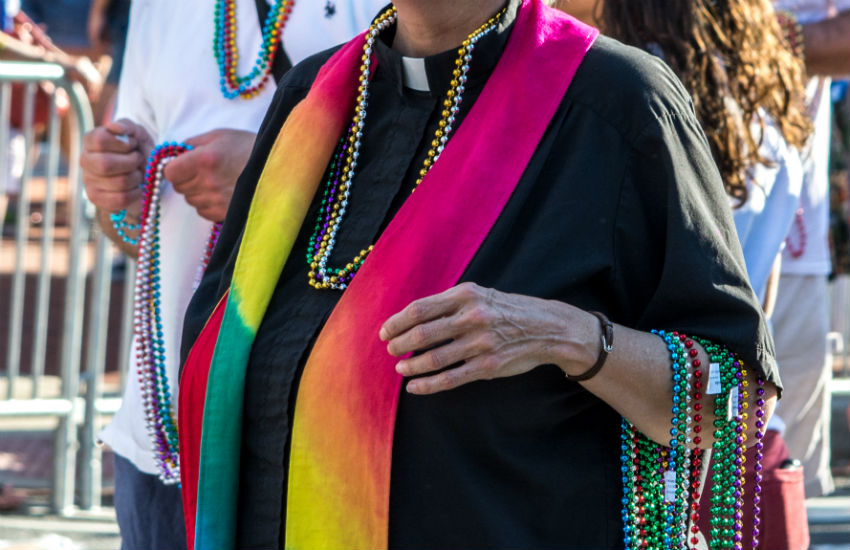Photo: Tim Evanson / Flickr
A Baptist association in Virginia kicked out a member of its Christian church branch over its stance on gay rights.
The Fairmont Baptist Association received information the First Baptist Church in Fairmont was preaching tolerance for homosexuality.
So it banned the church and pastor from its particular branch of Christianity.
Back in February, the church’s pastor Val Gittings wrote to the Times West Virginian about the difference of opinion.
She said: ‘I think it’s important for people to know that many progressive Christians reject outright the idea that homosexual behavior is a violation of God’s law.

Fairmont’s First Baptist Church. | Photo: Gerry Dincher / Flickr
‘We believe that the references to homosexuality in biblical passages are not toward committed, monogamous relationships. Rather, what is being condemned is inhospitality, heterosexual rape, pagan ritual sex and orgies, and pederasty.
‘We contend that gay orientation is not a choice; not only should gay behavior not be viewed as sinful, but gays are entitled to the same treatment as heterosexuals. We believe that gays should be welcome to participate fully in all areas of life, including the church,’ she wrote.
In response to the public acceptance of LGBTI rights, the association’s board recommended disfellowship.
Then, as of 9 April this year, they were no longer a part of the Baptist association.
Baptist church pastor says ‘everyone is welcome’
In response to the disfellowship, the Association of Welcoming and Affirming Baptists (AWAB) took to Twitter.
They tweeted on Tuesday (1 May): ‘AWAB stands in solidarity with Pastor Gittings, First Baptist Church of Fairmont, WV, and their courageous stand.
‘God bless and keep them as they journey forward,’ they added.
Gittings told the Times West Virginian she and her congregation are now looking for a more inclusive association to become members of.
In a follow-up statement, Gittings said she was sad but ‘hopeful’ by the news.
She then added: ‘Everyone is welcome… in our faith community, and we call on other churches to join us in extending that kind of invitation.’






